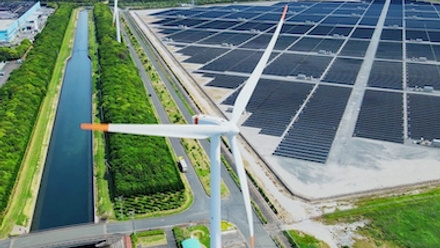What’s inside your pension investment strategy? Key questions to ask your pension provider

But the world is changing, and so is the expectation from your employees. They’re no longer interested in investment returns alone, they want to know where and how their money is being invested and, more to the point, if it’s doing good or harm to the planet.
And in reality, it’s likely doing more harm than good. The average UK pension is helping to pay for 23 tonnes of carbon emissions each year. It’s a massive amount and to put it into perspective, you would need to recycle for 19 years or plant 30 acres of forest to mitigate this level of emissions.
Over 84% of employees told us in our Pension funds and the climate crisis (March 2021) research that they are concerned about climate change, but nearly half (49.8%) don’t know that their pension could be invested in businesses that cause harm to the environment. But make no bones about it, they’re starting to find out, and 88% expect their employer to take action!
However, before you can take action, you need to know what’s going on under the proverbial bonnet. As a starting point, you should be asking your current pension provider the following four questions:
1. Where are my employees’ pension monies being invested and what is the level of CO2 emissions?
You effectively need to be demanding increased transparency on where your employees’ pensions are being invested. Data on underlying funds’ CO2 emissions needs to be shared with you and your employees so that you both can make informed decisions.
Over 55% (55.7%) of employees told us they want to know more about how their pension is invested and whether this contributes to climate change.
2. Where is your pension provider at with eliminating CO2 emissions?
Some pension providers are further along than others, for instance Cushon is already net zero, but all providers should have a plan.
It’s important that you understand the plan so that you can decide if this is acceptable or not and benchmark against other providers.
You might find that your pension provider, along with most others, has a plan to reach net zero by 2050 but in our view, this is not quick enough. With trillions of pounds already invested in UK pensions and billions more being invested each year, pensions have a critical part to play in tackling climate change.
In the words of Make My Money Matter – a people-powered campaign fighting for a world where we all know where our pension money goes – greening your pension is 21 times more effective at reducing your carbon footprint than giving up flying, going veggie and switching energy provider combined.
And the power basically sits with you the employer; you’re the primary decision maker and employees are looking to you for action.
3. What other investment options are available to employees?
Turning your workplace pension into a force for good is not just about climate change. There are other world issues that employees are concerned about, for instance gender equality and animal welfare.
Employees are expecting their pension investments to align with their own personal values and belief systems, and so the default fund needs to reflect these. If it doesn’t, there needs to be appropriate investment options available for employees to select.
4. Can employees have a say in how companies they invest in are run?
Climate change is about activism and people are no longer prepared to take a passive stance; they want to be involved. Over 62% of employees confirmed to us in our Pension funds and the climate crisis (March 2021) research that they want the opportunity to have a say in how the companies their pension is invested in are run. And when it comes to pensions, this is about voting rights.
Ultimately, it’s the fund managers who hold voting rights, but that doesn’t mean that employees can’t influence the way they vote. For instance, through our mobile app, we’ve recently launched voting functionality which enables employees to have their say on how companies they are invested in deal with broader global issues, including gender equality, animal welfare and of course environmental.
As employees get more involved, they become more engaged with their pension. Suddenly, pensions aren’t just about retirement, they’re about harnessing the power of capital and letting it become a force for good now, not just in 20, 30- or 40-years’ time.
In conclusion, we need to get people more engaged with their pension and saving more for retirement. But this can’t be at the expense of the planet. When it comes to workplace pensions, the ultimate power lies in the hands of you the employer and employees are saying, please do something about it, now.
And the starting point is finding out what is actually happening with your current pension investments and then pushing for change.
The author is Steve Watson, head of proposition at Cushon.
This article is provided by Cushon.
In partnership with Cushon
Cushon is an online savings&investments platform provider, offering holistic workplace savings.







